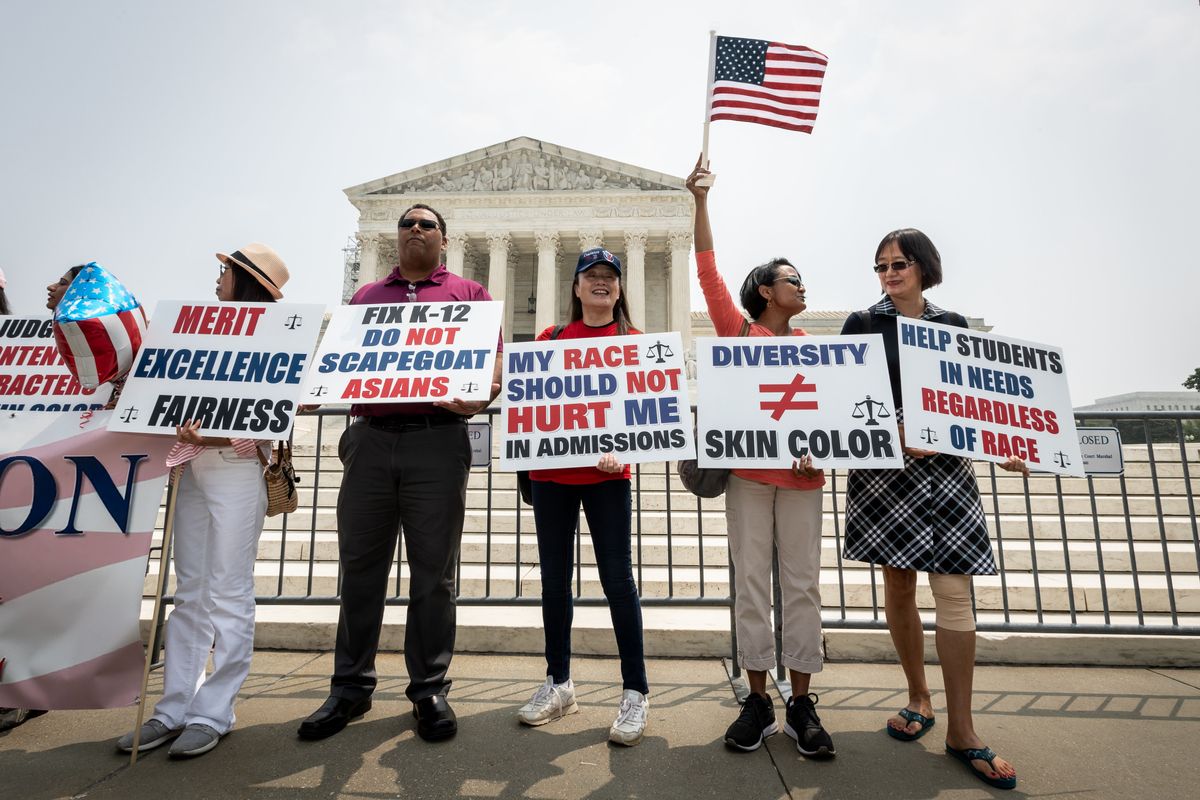The US Supreme Court ruled today to end affirmative action policies in college admissions, prohibiting race from being used as a factor in deciding who gets acceptance letters. The decision, powered by the court’s conservative flank, will force over 40% of US colleges to overhaul their admissions policies.
The case accused the University of North Carolina and Harvard University admissions policies of discriminating against white and Asian American applicants. UNC and Harvard argued that race is just one of many factors taken into consideration and is done so to ensure diversity and racial equity.
The majority opinion (6-3 against UNC, 6-2 against Harvard) ruled that affirmative action makes race “the touchstone of an individual’s identity” and violates the equal protection clause of the Constitution. Military service academies were exempt from the ruling.
Mandating that universities use colorblind admissions criteria may decrease racial diversity and limit the pool of students universities draw from. But even before this ruling, US colleges – especially at selective schools – have limited their talent pool by depending on criteria that benefit applicants from wealthy backgrounds.
In the best-case scenario, forcing colleges to overhaul their admissions criteria could lead to a better, perhaps more holistic system that accepts more first-generation college students, racial minorities, and economically disadvantaged students. Worst-case scenario? This ruling decreases diversity on campuses and enables colleges to ignore that racial discrimination still permeates American society. The wider political response has fallen along predictable partisan lines – liberals lamenting and conservatives cheering.
Affirmative action withstood the Supreme Court’s scrutiny for decades, but this court hasn’t shied away from overturning precedent on cases with major societal implications. In a landmark decision last year, the court overturned Roe v. Wade – upending nationwide abortion access.
And the courts aren’t done with college students. Friday, the court is set to announce the fate of President Joe Biden’s student loan forgiveness plan, which, if upheld, would wipe out more than $400 billion in student debt. It will also rule on whether the First Amendment protects a web designer who refused to create websites for same-sex weddings.


















